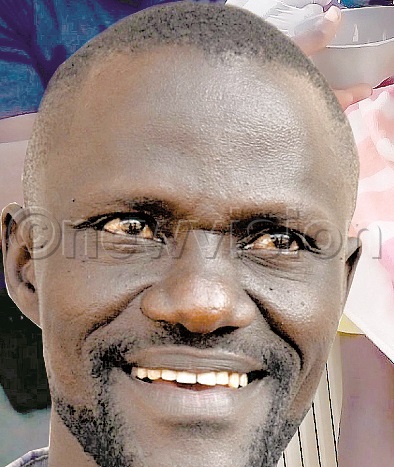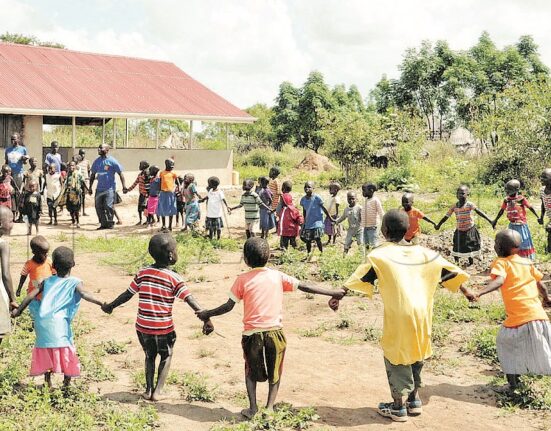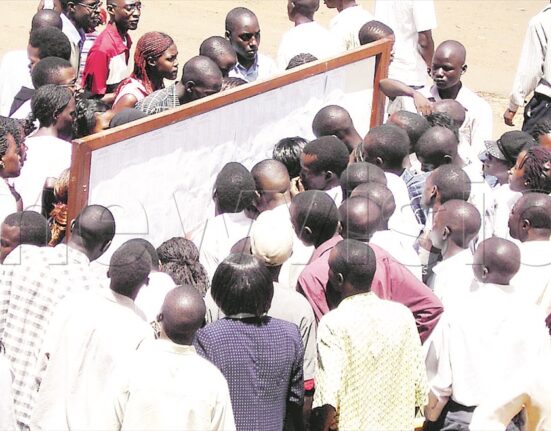(This article was first published in the New Vision on September 14, 2022)
By Charles Kakamwa
It is uncommon for teachers to ask children to assemble for health examinations at Spire Road Primary School in Jinja City. So, when Francis Etyang gathered children at this school to have their ears examined, his fellow teachers and pupils were eager to see how, a man without medical training, could carry out this examination.
With a headlamp illuminating the ear, Etyang carefully inserted into the ears of the children the otoscope that has a built-in light, allowing him to see the eardrum and ear canal on the magnifying lens of this gadget.
Out of the 230 pupils in Primary Four to Primary Seven he examined, Etyang says 56 had their ears filled with dust, which was, however, prevented from reaching the eardrum and ear canal by the earwax.
He used the crocodile forceps to remove the dust from the children’s ears, including learners with visual impairment.
This was the first time Etyang, who trained as a hearing instrument specialist from Starkey Hearing Institute in Zambia in 2019, carried out the examination at the school which has over 700 pupils.
He says the education ministry recommended that he attends the training after they learnt about his interest in teaching children with special needs.
Etyang, who spent 11 months in Zambia learning how to use hearing instruments, says he gained knowledge in detecting and managing ear infections, removing earwax and foreign bodies from ears, testing hearing levels and fitting hearing devices. He was one of the four Ugandan participants in the training, each representing one of the four regions of the country.
Kenneth Kyalimpa, a teacher, says the ear examination carried out by Etyang was mainly useful for the school’s 60 children with visual and hearing impairments.
“Imagine children who cannot see facing hearing challenges because of dust and foreign bodies in their ears. Many of them said they felt better after the examination,” he added.
Kyalimpa says Etyang has since carried out more ear examinations at the school, which has a unit for children with special needs. Apart from learners with hearing and visual impairments, the school also has autistic and dyslexic children.
It has five special needs teachers, with one of them employed by the Government, while the rest are paid by the parents through the Parents-Teachers Association contributions.
Teaching Special Needs Children
Etyang says he developed interest in teaching children with disabilities when he was posted to Spire Road Primary School in 2014. His interest was born out of a challenge he faced as he assessed a class that included visually impaired learners.
While Etyang could easily assess children who had challenges hearing, he says he found difficulty handling learners with visual impairement.
“I would run to the headteacher and colleagues for help yet I was expected to teach all the pupils. The Government expects all the teachers to have skills to teach inclusive classes,” he says.
Etyang says he used the Internet to search for ways on how to teach children with visual impairement and came across instructions for writing letters in braille. He says he also contacted a visually impaired teacher at the school, who taught him how to teach children without sight.
“At the end of 2014, all my learners with special needs passed my science subject because I had the skills to assess them. My colleagues were surprised,” Etyang says.
With skills for writing in braille, he adds that he could detect spelling mistakes and help learners make corrections without requesting trained special needs teachers to assist him. Etyang believes that it is critical for every teacher to have skills for teaching children with disabilities.
“You can learn these skills by watching videos on YouTube and asking special needs teachers to help you. Once the education ministry learnt about my interest in children with special needs, they invited me for workshops, where I gained more knowledge,” he adds.

Lively Classes
Etyang, a P5 class teacher, says the knowledge and skills he has acquired over the years in teaching children with special needs enables him to make his lessons lively and to engage all the learners.
“While some teachers find it hard to teach an inclusive class, it is easy for me. However, I still face some challenges and when that happens, I request for help from teachers trained in handling children with special needs,” he says.
Inclusion
Etyang explains that he encourages learners to treat each other with respect, adding that he also gives leadership roles to children with disabilities. This, he says, is intended to promote inclusion and ensure that each child participates in their learning. “I sometimes pick children with special needs to lead discussion groups. They take notes in braille and deliver presentations in the classroom,” he adds.
Etyang says he also secured computers for Kisima I, Spire Road, Army Boarding, St. Gonzaga and Seventh Day Adventist primary schools from his friends in the US to promote ICT.
Etyang, who was until 2019 the chairperson for games and sports in the then Jinja Municipal Council, says he also encourages learners to embrace sports, such as football and volleyball, as well as playing musical instruments like guitars.
He says he trained visually impaired children who lived at the school during the COVID-19 lockdown how to find educational resources on the Internet.
Etyang, who is the Uganda National Teachers Union chairperson for Jinja city, says he mobilised parents to send their children back to school when the lockdown was lifted.
He says he also encourages children with special needs to remain in school by giving them examples of people with disabilities, in Uganda and beyond, who have been successful leaders in their respective fields through education.
Others Speak Out
Mariam Nakandi, Etyang’s former pupil
I got an infection in my arm when I was in Primary Three in 2010 and my parents could not afford my treatment. Etyang connected me to his friends in the US, who paid my medical bills and also financed my education from P3 to S4.
Samuel Ngobi, Jinja sports officer
Etyang has a lot of knowledge about computers and has promoted the teaching of ICT in schools in Jinja.
Peter Ogik, Leader of persons living with albinism in Busoga
He taught me at Kisima I Primary School. He goes out of his way to empower the less privileged children. He takes special interest in children with disabilities so that they are not left behind. As a child with albinism, he always gave me special attention.
Golden Tips
- Love your job
- Do not pay attention to negative forces
- Seek support from colleagues and supervisors
- Trust in God
Fact File
- 1996: Sat P7 exams at Pamba Primary School, Soroti
- 2000: Did O’level at Soroti Secondary School
- 2003: Graduated as grade III teacher at Soroti Primary Teacher’s College
- 2003: Started teaching at Police Barracks Primary, Jinja
- 2004-2014. Teacher at Kisima I Primary School, Jinja
- 2014 to date: Teacher at Spire Road Primary School









Leave feedback about this